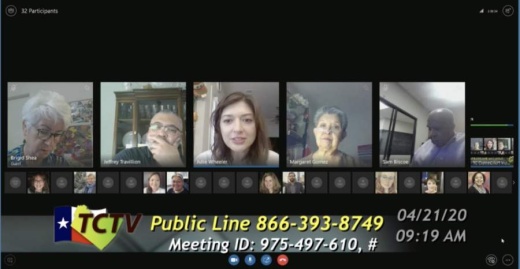Julie Wheeler, Travis County Intergovernmental Relations officer, told the Travis County Commissioners Court at an April 21 meeting that changes will likely have an effect on planned redistricting considerations in the next Texas legislative session, to begin in January 2021.
“We were supposed to kick off the legislative session with redistricting being the No. 1 priority, along with the budget,” Wheeler said. “What [the delay] means is they would not potentially receive data until after the legislative session is over. Statutorily, they’re still supposed to respond to the data the first legislative session after they receive the data, so it’s still sort of up in the air.”
According to the U.S. Census Bureau’s new timeline, redistricting data may not be available to states until July 31, 2021. As a result, any redistricting as a result of new population data might be postponed to the following legislative session, which is slated for 2023. As Wheeler pointed out, this would impact not only districting at the state level, but subsequently at the county level, which makes districting decisions once in possession of updated state maps.
“Right now, we don’t have a definitive pathway for what would happen, but we do know this would cause significant delays,” Wheeler said. “It’s going to be an interesting domino effect to see what happens.”
Meanwhile, Travis County census efforts continue as local officials recalibrate outreach avenues for low-response areas of the county, such as the University of Texas West Campus, North Lamar-Rundberg, and far western Travis County, including Lago Vista—a surprising lag, according to Travis County Census Coordinator John Lawler.
“That may be something we’ll need to figure out a creative solution for,” he said.
Lawler said the county outreach groups for various demographics are pursuing a layered approach to accessing hard-to-reach populations, including digital outreach, phone calls, postcards and flyer distribution at community hubs still in use, such as food pantries. This approach has seen strong results with Latino population in Southeast Austin in particular, Lawler said.





